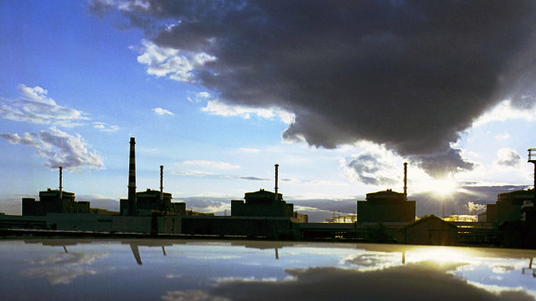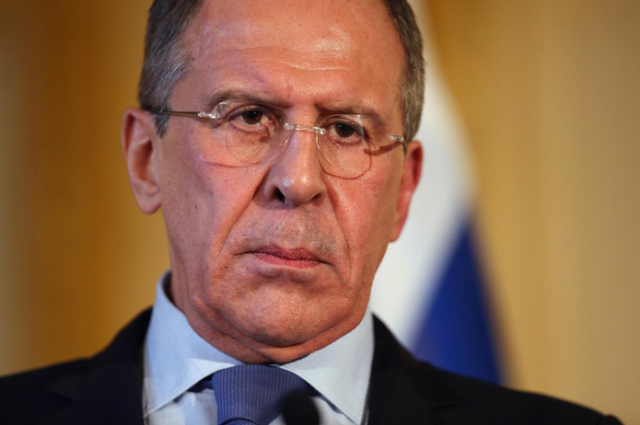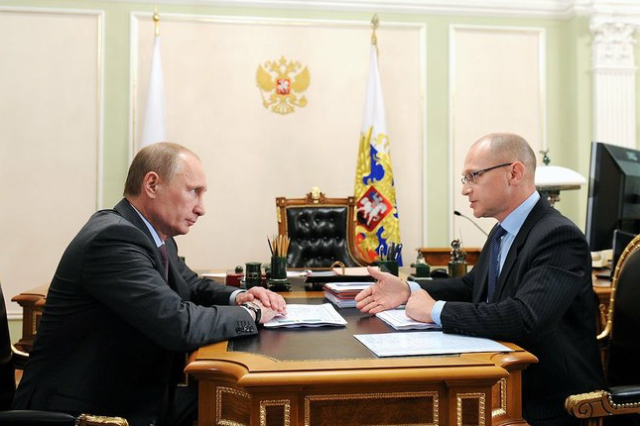
Arctic Frontiers: Disinformation, Security and the Northern Sea Route
Bellona held a seminar on countering Russian disinformation in the Arctic at the Arctic Frontiers international conference in Norway
News

Publish date: March 28, 2014
News
The Kremlin finally backed up statements made last week by Russian state nuclear corporation Rosatom that Ukraine will continue to receive Russian-made fuel, despite the countries’ ever-worsening relations relative to Moscow’s military annexation of the Crimean Peninsula.
Speaking at a nuclear security summit in The Hague yesterday, Russian Foreign Minister Sergei Lavrov at last went on the record – with evident irritation – saying that Russia would continue to supply Ukraine’s 15 Soviet-built reactors with fuel.
On Tuesday, a Ukrainian representative at the summit accused Russia of threatening the security of nuclear reactors in Ukraine and called on the world to help protect them, RIA Novosti, a state run Russian news outlet, reported.
The Russian Foreign Ministry in turn dismissed the allegations as an attempt to redirect blame for ongoing instability in the country away from the new Ukrainian government.

The ministry added that Russia will continue to fulfill its obligations to Ukraine by supplying nuclear fuel and help to maintain nuclear security in the country.
“Today is probably not the simplest time for cooperation between Russia and Ukraine, but there has been no interruption in fuel deliveries to Ukraine’s nuclear power plants,” Rosatom head Sergei Kiriyenko said, as quoted by the state agency, adding the company will always fulfill its contractual obligations as “this is an issue of reputation and trust.”
Kremlin finally lines up behind Kiriyenko
The question of where Ukraine would get its nuclear fuel had remained murky ever since Deputy Prime Minister Dmitry Rogozin on March 5 said Russia would embargo nuclear fuel shipments in the midst of mounting tensions that have led to western economic sanctions and fears of a new Cold War in the wake of the Crimean annexation.
Simply cutting off fuel to nuclear reactors, however, is extraordinarily dangerous, as nuclear reactions don’t stop on a dime when you hit the off button. They must continue to have power to cool down before full shut-off, which means they need a steady supply of fuel.
Rogozin brushed off such concerns by blithely saying Ukraine had enough fuel stockpiled to safely run its nuclear power plants until the end of April.
On March 7, speaking from Turkey, Rosatom head Sergei Kiriyenko rushed to assuage international fears of 15 new Chernobyls clouding already darkening political skies, and promised that Rosatom’s TVEL fuel subsidiary would continue to make good on its deliveries on Ukrainian contracts.
But, as Bellona’s Alexander Nikitin pointed out, Kiriyenko, who heads a corporation, was treading waters above his clout quotient when he made that promise.

Nikitin said Kiryenko’s statement from Turkey – where Rosatom is in negotiations on other reactor contracts – were those of “a businessman in a situation that will be decided by politics.”
Kiryenko, said Nikitin, has worked over the past few years to distance himself from purely political decisions and reinvent himself as an international nuclear wheeler-dealer – which is effective only so long as he has the Kremlin’s backing.
Apparently, the politics have flowed in Kiryenko’s favor, as well as those of concerned environmentalists, who have watched the developments Rogozin’s fuel embargo with baited breath.
But Kiriyenko’s statements to The Hague security summit were certainly tempered with a little more cognizance of the political briar patch the Kremlin is heading toward.
“Taking into account a wide range of comments on possible limitations in economic cooperation, we understand that some of these [international] contracts may be limited by politics,” he was quoted as saying.
“We are committed to long-term cooperation with our partners. As of today, our plans remain unchanged and none of our contracts have been terminated.”
Or will they be?
Whether that continues to hold true, though, will be a decision for the international community.
Great Britain, which in September 2013 signed a nuclear cooperation agreement with Rosatom, with an eye to allowing the corporation into the British nuclear market, has now put the deal on ice, according to the BBC.
The UK department of Energy and Climate Change (DECC) said the agreement was “under consideration” following Russia’s military takeover of Ukraine’s Crimea region.
The Ukraine crisis has also thrown a nuclear reactor construction project by Fennovoima in Finland into chaos. Thirty-four percent of the Fennovoima consortium is owned by Rosatom, who would build the Hanhikivi nuclear power plant on Finland’s northwest coast.
That nuclear power plant project is already on shaky ground as it is. By Finnish law, Fennovoima must be owned by a “clear majority” of Finnish firms. So far that clear majority is merely 50.2 percent.
That Rosatom is the only other clear owner – and champing at the bit to buy up the remaining 15 percent of Fennivoima shares, is making things awkward for Finland in a Europe that is calling for a trade boycott against Russia.
Russia’s Foreign Ministry has earlier said that talking to Russia in the language of sanctions and trade boycotts is “inappropriate and counterproductive” and warned the West about the “boomerang effect” such sanctions would for them at home.

Bellona held a seminar on countering Russian disinformation in the Arctic at the Arctic Frontiers international conference in Norway

Our December Nuclear Digest, reported by Bellona’s Environmental Transparency Center, is out now. Here’s a quick taste of three nuclear issues arisin...

Bellona has launched the Oslofjord Kelp Park, a pilot kelp cultivation facility outside Slemmestad, about 30 kilometers southwest of Oslo, aimed at r...

Our November Nuclear Digest by Bellona’s Environmental Transparency Center is out now. Here’s a quick taste of just three nuclear issues arising in U...